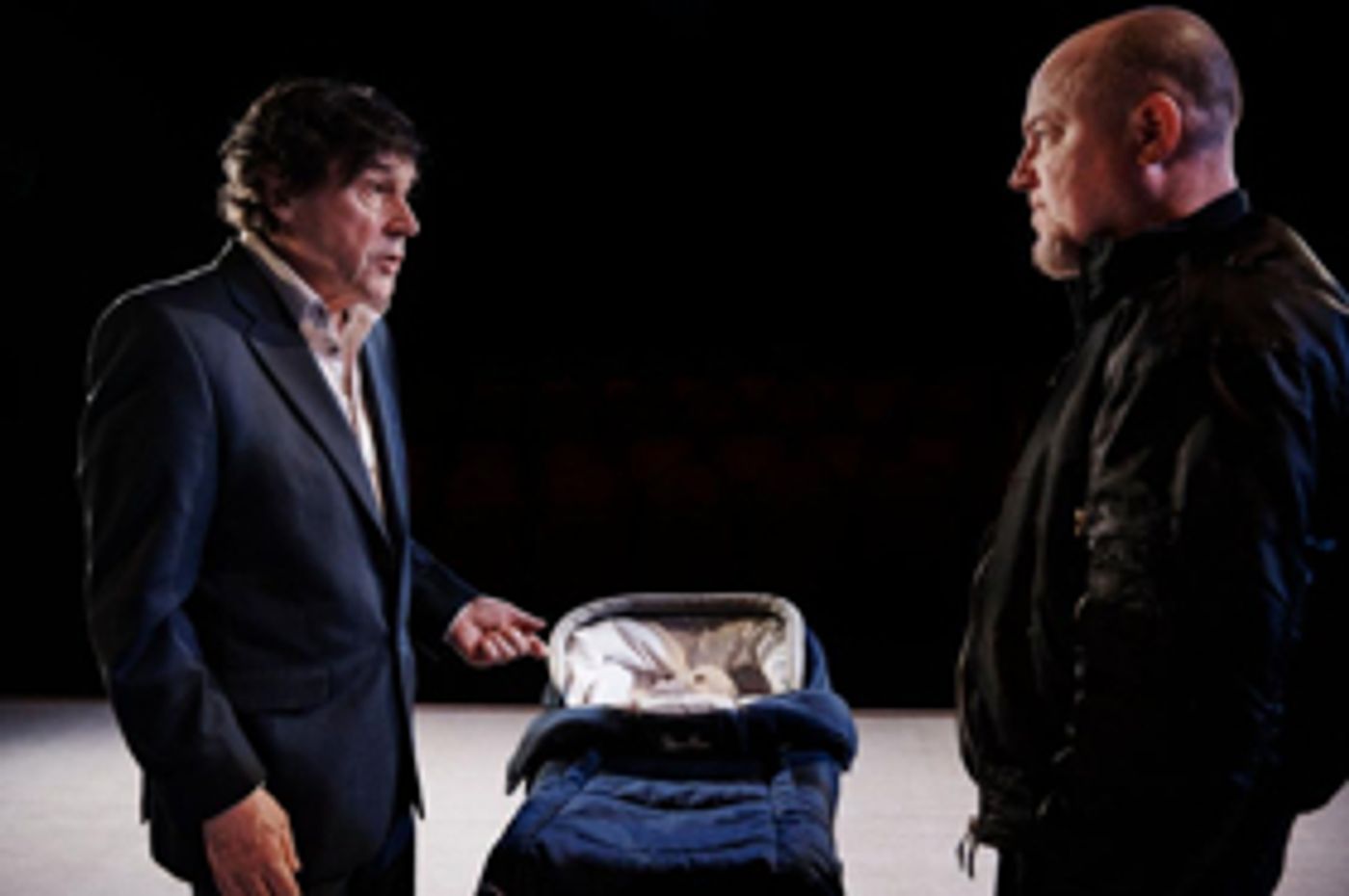Review: CYPRUS AVENUE, Royal Court

![]() I grew up amongst Roman Catholics in the most Roman Catholic city in England. Their rituals were exotic, other, mysterious - brothers in cassocks would visit houses, depictions of torture and death took the place of Constable's Haywain in our living room, they had days off school when we had to go in. Later, I would visit Italy and luxuriate in the sensual chaos of that country, with confession snd absolution available on every street - a cliché I know, but girlfriends tended to have some Catholicism in their family background too. To graze at Catholicism's cultural buffet was enriching and exciting.
I grew up amongst Roman Catholics in the most Roman Catholic city in England. Their rituals were exotic, other, mysterious - brothers in cassocks would visit houses, depictions of torture and death took the place of Constable's Haywain in our living room, they had days off school when we had to go in. Later, I would visit Italy and luxuriate in the sensual chaos of that country, with confession snd absolution available on every street - a cliché I know, but girlfriends tended to have some Catholicism in their family background too. To graze at Catholicism's cultural buffet was enriching and exciting.
The Troubles loomed large in the news of course, but one could see the nature of the Republican cause, understand their soft spoken men with their romantic rebel songs, place Ireland (by which I mean Dublin and, to a lesser extent, the West of Ireland) into a political, artistic narrative.
That Ireland was cosy and familiar.
And then there was another Ireland - Northern Ireland. These men were slab-faced and shouty, they marched past the top of my road in July wearing bowler hats and orange sashes playing military music and their cause was hard to understand. They proclaimed to be British, but they seemed more like a Pennsylvanian cult, a tribe, an unexotic other. It's a distance that's never really been closed, as those unsmiling photos of DUP politicians with Theresa May tend to show.
Eric thinks that his baby granddaughter looks like Gerry Adams - that his baby granddaughter is Gerry Adams, that his baby granddaughter is the President of Sinn Fein, the icon of Republicanism.
Eric has denied his Irishness all his life (his story about going to an Irish pub in London is a comic tour-de-force), but, with the Unionist identity so weak in the face of Tom Cruise and all the other "Irish", he can find himself only in hating the "Fenians".
Eric is in a room with a psychologist and his shoes have no laces...
David Ireland's (really, David Ireland) play is a corruscating black comedy, a brutally unflinching examination of what can flow into a vessel, bereft of its identity and emptied of its humanity by fear. It (literally) pulls no punches and, if it gives Eric a command of language that seems preternaturally poetic at times, well he's not a real person is he? Is he?
Stephen Rea navigates Eric's contradictions with absurdly charismatic charm - even as I walked, shaking a little, into the night, I didn't hate Eric, just what he did. Rea shuffles about, sometimes shouts, but mainly pleads (to himself as much as to us or his wife or his daughter) - like many late middle-aged men he wants things to be as they were, people to be back in their "natural" boxes that made life easier to understand. Rea's performance, with that mournful face that one can believe has "never smiled for ten years" reminded me of another actor who played a psychiatric patient, Jack Nicholson as Randle McMurphy - he's that good.
The support cast are really only there to throw light on Eric's descent into madness. As his clinician, Ronke Adékoluejo is the calm voice of medical authority, As his daughter. Amy Molloy gives voice to the new Ireland(s) of the 21st century (one that may be sliding through our fingers not two miles away from the theatre as the run continues). Andrea Irvine is the bustling, busy wife who thinks the best of Eric until she can only think the worst.
The rationality of all three women prove no match for the roiling sea of psychosis welling up inside Eric.
Chris Corrigan's tremendous turn as Slim, the physical manifestation of Eric's careering id, gets plenty of laughs but never loses the menace, a brilliant cameo that stays just on the right side of caricature and puts you in mind of more than a few lads who've had a beer or two, especially at football grounds in the 80s.
But the play is about Eric and therefore about Rea, who so inhabits the role that you wonder how he recovers from the nightly 100 minutes spent inside Eric's head, not a place anyone would like to be. No matter how good you think Rea will be in the role, he's that and more when you see him close up.
Ultimately, I reflected on Unionism and Unionists. Gone is the booming voice of Ian Paisley (and even that mellowed in his extraordinary late friendship with Martin McGuinness) but his successors and the people they represent are still there. They have made their accommodation with Nationalists and Republicans and the six counties can be separate or part of the 32 pretty much according to taste.
But that delicate balance is threatened by the contradictions of Brexit, the Gordian Knot still holding tight just a few weeks before the UK shears itself from the EU (and hence, somehow, Northern Ireland from the Republic). What then for the strange sect that the English, Welsh and most Scots don't want to think about and that the "Irish" Irish (as Eric would say) tolerate at best?
Cyprus Avenue continues at the Royal Court until 23 March.
Photo Ros Kavanagh
Reader Reviews
Powered by
|
Videos

